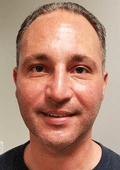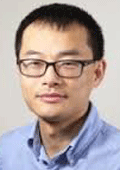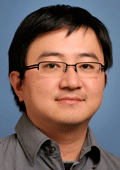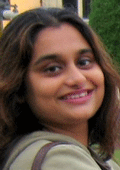ISQED2017 Embedded Tutorials
Chair & Moderators:
Vinod Viswanath - Real Intent
Shiyan Hu - Michigan Technological University (Co-Chair)
Tutorial 1
Tuesday, March 14, 1:45:00PM-2:45PM
Accelerate DFT Verification to Reduce Test Costs, Close Coverage Gaps and Shorten Time to Market and Entitlement
Presenter:
Robert Serphillips, Mentor Graphics
 Robert Serphillips
Robert SerphillipsAbstract: Traditional DFT process and methodologies are facing tremendous challenges to meet time to market goals and device coverage metrics. For a device to achieve high coverage, DFT engineers are faced with an exponentially increasing pattern set that leads to long pre-silicon simulation time and overall device test costs. Time to entitlement is at further risk exacerbating the need for a feature rich platform to accelerate traditional simulation processes and increase final test robustness. This presentation introduces emulation as the next logical step for DFT acceleration due to its ability to handle very large gate level designs with runtimes several orders of magnitude faster than the traditional software-based approach. This results in a higher quality design, yielding less silicon revisions, reduced lab costs and lower product and test costs.
About Robert Serphillips
Robert Serphillips has worked in the pre-silicon verification, post-silicon validation, and production design-for-test (DFT) fields. He has designed and debugged ATE test patterns on multiple stand alone and SoC devices spanning close to 20 years in the semiconductor industry. The products include a mix of consumer, automotive, industrial, military, networking and mixed-signal. Robert is currently a Technical Marketing Engineer with the Mentor Graphics Emulation Division.
Tutorial 2
Tuesday, March 14, 2:45PM-3:45PM
Cyber-Physical Systems in Unmanned Aerial Vehicles
Presenter:
Dr. Huafeng Yu, Boeing Research & Technology
 Dr. Huafeng Yu
Dr. Huafeng YuAbstract: Mobile autonomous systems, such as self-driving cars and unmanned aerial vehicles (UAVs), witness a very fast development recent years thanks to the maturity of artificial intelligence technologies and their supporting electronics. Because of less limitation in the design, production and application, remote-controlled or autonomous UAVs become the most deployed mobile autonomous systems in the world. UAVs generally feature limited size, weight, power, and range, but they are required to support expected level of performance, autonomy, reliability and safety. Design of UAVs under these limitations and requirements are still common issues. UAVs are cyber-physical systems (CPS), which are composed of hardware, software components as well as scheduling and resource allocation mechanisms. Based on this CPS point of view, in this tutorial, an overview of previous design issues and state-of-the-art solutions will be presented, particularly UAVs' system architecture and safety. Future design directions of UAV system architecture, coordination, security and safety will also be discussed.
About Dr. Huafeng Yu
Huafeng Yu is a senior researcher with Boeing Research & Technology, located in Huntsville, Alabama. His main research interests are mainly in formal verification, model-based design, safety and reliability, cyber security, machine learning for mobile autonomous systems. He received his PhD from University of Lille 1 and Master's from University Joseph Fourier both in Computer Science in France. Huafeng is currently a member of IEEE Technical Committee on Cyber-Physical Systems (CCPS) and chair of its industry outreach committee. He is also a member of SAE standard committee for AADL. Huafeng serves as associate editor of IET Journal on Cyber-Physical Systems, as well as guest editor of IEEE Transaction on Sustainable Computing. He currently serves on program committee of DAC, DATE, ICCAD, SAC, etc.
Tutorial 3
Wednesday, March 15, 1:00PM-2:00PM
Design Automation for Cyber-Physical Systems: Challenges and Opportunities
Presenter:
Dr. Qi Zhu , University of California, Riverside
 Dr. Qi Zhu
Dr. Qi Zhu Abstract: Cyber-physical systems (CPS) such as autonomous and semi-autonomous vehicles, smart buildings, and industrial automation systems, are poised to bring immense economic and societal benefits. However, the design of these systems faces tremendous challenges from the rapid increase of system scale and heterogeneity, the close interaction with dynamic environment and human activities, the employment of multicore and distributed architectural platforms, and the stringent (and often conflicting) requirements on various design metrics. To address these challenges, it is critical to have a new set of design automation methods and tools for the modeling, synthesis and verification of cyber-physical systems. In this tutorial, I will discuss some of the unique challenges in CPS design, and introduce the design automation methods we developed for addressing them, including 1) a software architecture synthesis framework for generating correct, predictable and efficient software implementations from functional models, while optimizing metrics including control performance, schedulability, extensibility, fault tolerance, memory usage, modularity and reusability; 2) a cross-layer design framework for CPS security and its application in automotive electronic systems and vehicular networks; and 3) co-design and co-scheduling methodologies for energy-efficient building management and their integration with grid-level optimization.
About Dr. Qi Zhu
Dr. Qi Zhu is an Assistant Professor at the Department of Electrical and Computer Engineering in University of California, Riverside. Prior to joining UCR, he was a research scientist at the Strategic CAD Labs in Intel from 2008 to 2011. Dr. Zhu received a Ph.D. in EECS from University of California, Berkeley in 2008, and a B.E. in CS from Tsinghua University in 2003. His research interests include model-based design and software synthesis for cyber-physical systems, CPS security, energy-efficient buildings and infrastructures, and system-on-chip design. He received best paper awards at the Design Automation Conference (DAC) 2006, DAC 2007, International Conference on Cyber-Physical Systems (ICCPS) 2013, and ACM Transactions on Design Automation of Electronic Systems (TODAES) 2016. He received the National Science Foundation (NSF) CAREER award in 2016. Dr. Zhu has served on the technical program committees and as session organizer and chair for a number of international conferences, including DAC, ICCAD, DATE, ASP-DAC, CODES+ISSS, RTSS, RTAS, SAC, SIES, MEMOCODE, etc. He is the education committee chair of the IEEE Technical Committee on Cyber-Physical Systems. He received the ACM SIGDA Service Award in 2015.
Tutorial 4
Wednesday, March 15, 2:00PM-3:00PM
Computational Methods to Uncover Targeted Therapies for Cancer
Presenter:
Dr. Subarna Sinha , Stanford University
 Dr. Subarna Sinha
Dr. Subarna Sinha Abstract: Cancer is a complex disease characterized by a large number of point mutations, large structural changes and epigenetic dysregulation. Cancer genome sequencing projects such as The Cancer Genome Altas (TCGA) have profiled tens of different tumor types with hundreds of samples per tumor type. These projects have demonstrated convincingly that cancer genomes exhibit considerable heterogeneity among different individuals. New analytical techniques are needed to extract common biological principles from massive amounts of data to provide useful mechanistic insights about cancer and thereby guide effective therapy. In this tutorial, I will start with a brief overview of current methods to identify targeted therapies for cancer patients. Then, I will present Boolean implications, a new data mining method that can be used to mine large, heterogeneous cancer data sets and demonstrate its application to derive new actionable hypotheses for targeted therapy. I will describe MiSL (Mining Synthetic Lethals), a new Boolean implication-based method for mining synthetic lethal partners of recurrent cancer mutations by analyzing pan-cancer primary tumor data. Initial results are promising, and indicate that MiSL can effectively identify mutation- and cancer-specific pharmacologic targets and genetic biomarkers for tumor drug sensitivity.
About Dr. Subarna Sinha
Subarna Sinha is a Bioinformatics Program Leader at SRI International and a Research Scientist at Stanford University. Her research interests are in computational biology and data mining algorithms for biology, with an emphasis on cancer systems biology. Prior to that, she worked at research groups at Synopsys and at Intel, with a focus on Design-For-Manufacturability and logic synthesis. She received her PhD in EECS from UC Berkeley in 2002. She is the recipient of the Donald O Pederson best paper award in 2009 and the Synopsys Inventor of the Year award in 2009.

